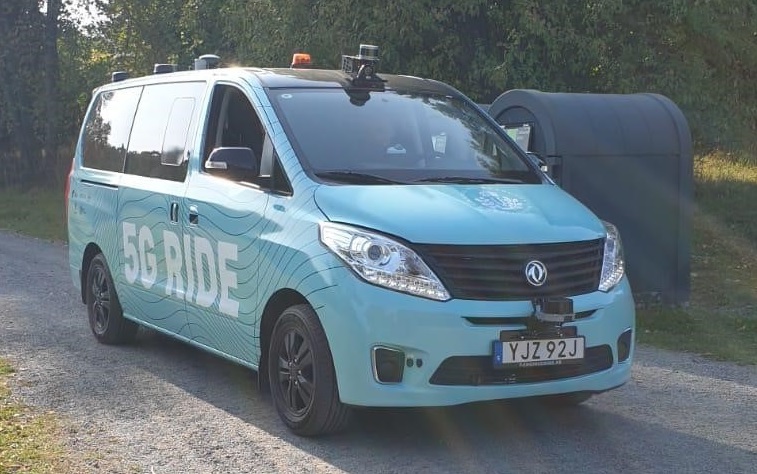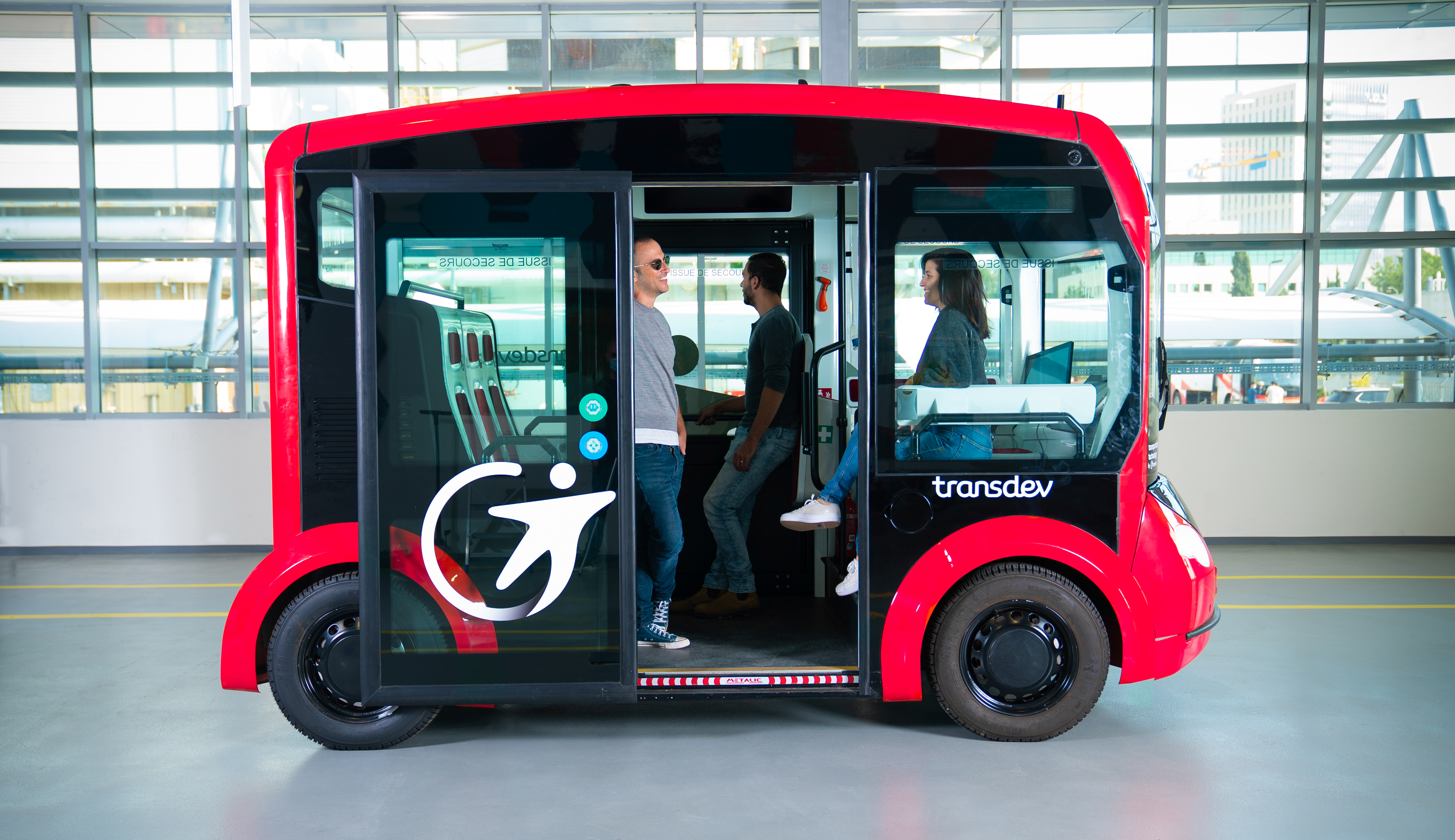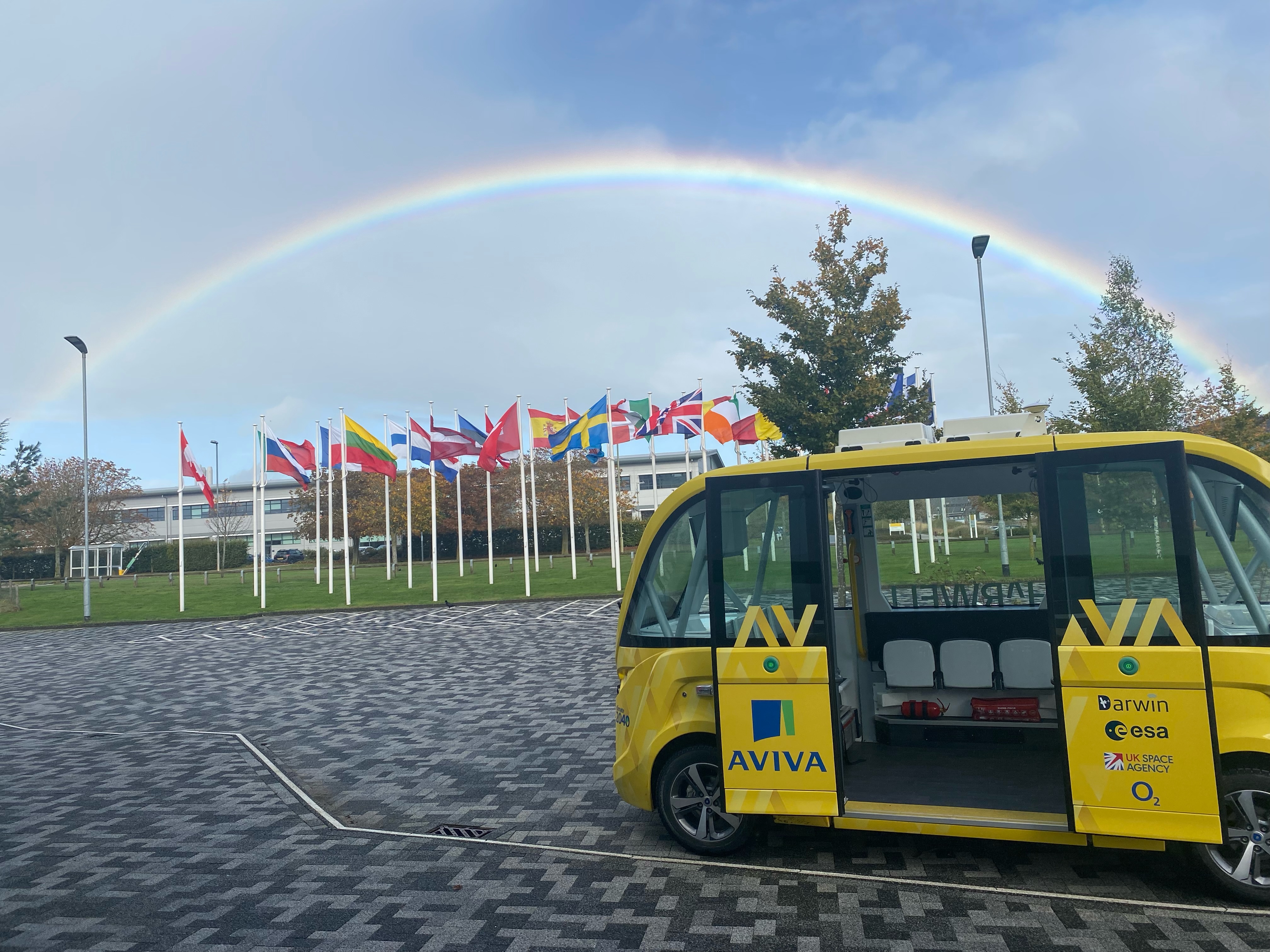Keolis has tested a 5G-connected autonomous electric minibus that comes with an artificial intelligence (AI) system that detects passenger behaviour at the Kista Science Centre in Sweden.
This demonstration in Stockholm explored how real-time data from inside the autonomous vehicle can be transmitted to the centralised supervision (traffic) tower. In return, it also assessed how the vehicle responds to its commands with the support of the AI system and 5G network data speeds.
The data, collected by cameras, included counting passengers and tracking items left behind on the bus. These items were signalled to passengers using outboard microphones.
Keolis says the system can inform the supervision tower if someone is not feeling well, allowing its operator to call a doctor or an ambulance.
The company describes the incorporation of AI as an important step in preparing for full autonomy and in removing the driver safely from the bus.
Telia and Ericsson provided 5G connectivity while Intel delivered processing power to the IT system in the vehicles and the supervision tower, as well as the mobile network.
Swedish technology firm Tengineering equipped the vehicle with autonomous vehicle technology.
The partners plan to start running trials without a safety driver on board at the end of 2022/early 2023.
Bernard Tabary, CEO international at Keolis, says: "Enhancing everyday lives by making shared mobility smarter and more sustainable is essential for the future of public transport. As we move towards fully autonomous driving, our demonstration in Stockholm represents an important new step by integrating AI detection sensors to create a safe, comfortable passenger experience. We are extremely pleased with this new development in autonomous driving with our partners in Sweden, following successful trials over the past year.”
In a separate project, Keolis tested a Navya-built autonomous electric shuttle service in Gothenburg’s Lindholmen Industrial and Science park from January to May.
Keolis demos 5G autonomous minibus
Trial included input from Telia, Ericsson and Tengineering
Keolis plans to run trials without a safety driver at the end of 2022/early 2023 (image credit: Keolis)











